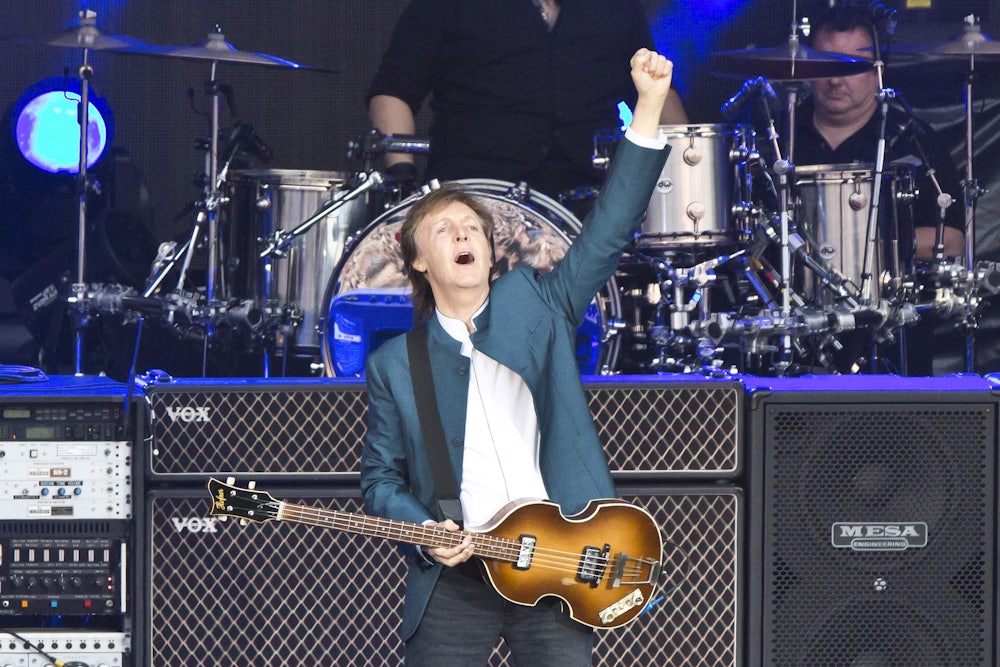There was something fitting and something discomfiting in the climactic moment of the nutty pastiche of a spectacle that Danny Boyle concocted to open the 2012 Olympic Games. Music has always played a role in the grand theater of the Olympiad, with original works typically commissioned from brand-name composers such as Philip Glass and John Williams. (In 1981, Leonard Bernstein wrote a piece for the International Olympic Congress, though it was mostly adapted from an earlier musical-theater song of his.) This year, Boyle made a big point of using English pop music of relatively recent vintage in the opening ceremony, a deftly executed gesture of aesthetic egalitarianism. It was startling—thrilling, even—to hear even a few seconds of records such as The Jam’s “Going Underground,” The Clash’s “London Calling,” The Specials’ “A Message to You Rudy,” and both “Pretty Vacant” and “God Save the Queen” by the Sex Pistols, where the likes of John Williams had gone before. Then came Paul McCartney, looking winsome with his light brown mane, to lead the world in a sing-along to “Hey Jude.”
In one sense, the song was the perfect choice for the moment. “Hey Jude” started life as an improvisation that McCartney came up with to comfort Lennon’s then-young son Julian, who was having trouble handling his parents’ divorce. The sing-song melody has the soothing bounce of rock-a-bye music, and the words offer, in vague but effective platitudes, cheering exhortations to overcome some unspecific challenges. (John Lennon, in the Playboy interview he did a few months before his murder, called the McCartney song “one of his masterpieces” and said he heard it as a message of encouragement to him—“he was saying, ‘Go ahead, leave me.’ … The angel in him was saying, ‘Bless you.’”) As a boosterish message of faith in the power of hope, or something along those lines, “Hey Jude” is the ideal theme song for the Olympiad of NBC, in which every athlete has a story, and every story is a mini-narrative of hope and platitudes.
Unlike John Lennon, George Harrison was never so fond of “Hey Jude,” which he saw as a sign of McCartney’s growing dominance of the Beatles in the period after their manager, Brian Epstein, died and John met Yoko. The band was less a band, Harrison felt, and more a group of accompanists to McCartney, crooning at the piano. Watching the original video for “Hey Jude,” one can see Harrison’s point.
The second part of “Hey Jude”—the “na-na-na-na” sing-along which runs, on the record, longer than the section of conventional words and music—brings “Hey Jude” to another place, a ’60’s place of communal high spirits. Sung in unison by tens of thousands of people in the Olympic Stadium, the universally communicative, non-verbal chant of “Hey Jude” seemed a monumental statement of globalist optimism. That’s a beautiful thing, I know. Still, I couldn’t help but find something just a little bit unnerving in the image of Paul McCartney, the beknighted embodiment of fatherly English warmth and kindness, leading the world, if only symbolically and only in nonsense song. There is a difference between singing along and serving, for sure, between being a member of a giant choral group and being a subject. Yet I wonder how George Harrison would have felt, if he were in the Olympic Stadium this week.
